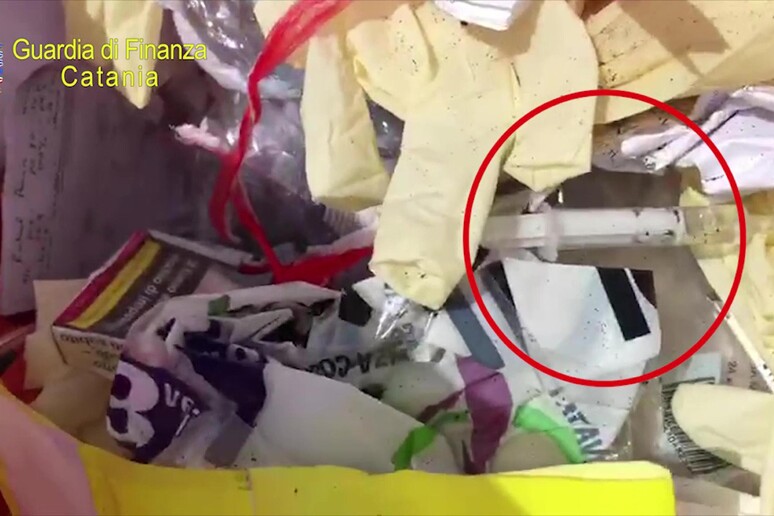Italian judicial authorities on
Tuesday ordered the preventative seizure of the Aquarius
migrant-rescue ship in relation to a probe into alleged illegal
dumping of waste by medical-aid NGO Médecins Sans Frontières
(MSF - Doctors Without Borders).
The ship is currently in Marseilles.
The case regards the alleged dumping of "dangerous and
potentially infectious" refuse, including medical materials, as
if it were ordinary household waste.
Prosecutors suspect that 24,000 kilos of waste was dumped in
this way on 44 different occasions. The waste was alleged dumped
in 11 ports - Trapani, Pozzallo, Augusta, Catania and Messina in
Sicily; Vibo Valentia, Reggio Calabria and Corigliano Calabro in
Calabria; Naples and Salerno in Campania; and Brindisi in
Puglia.
In total, 14 people are under investigation in the
'Borderless' probe conducted by state and finance police and
coordinated by Catania prosecutors and 460,000 euros have been
seized.
"I was right to stop the NGOs' ships (landing in Italian
ports)," Deputy Premier and Interior Minister Matteo Salvini
said via Twitter."Not only did I stop the trafficking of
migrants but, according to what has emerged, I stopped the
trafficking of refuse too. #portichiusi (#portsclosed)".
MSF said that the Italian judicial authorities' request was a
"disproportionate and unfounded measure, purely aimed at
criminalising lifesaving medical-humanitarian action at sea".
"After two years of defamatory and unfounded allegations of
collusion with human traffickers, judicial investigations, and
bureaucratic obstacles against our humanitarian work, we are now
accused of organised crime aimed at illicit waste trafficking,"
said Karline Kleijer, MSF's head of emergencies.
The NGO said the in-port operations, including waste
management, of its search-and-rescue vessels had always followed
standard procedures.
The head of the Italian branch of MSF, Gabriele Eminente,
said in a press conference Tuesday that, during landings,
"police and healthcare authorities come onboard. It is absurd to
say that we were engaged in illegal waste trafficking under the
eyes of the authorities, who were there during the 200 landings
we managed."
MSF doctor Gianfranco De Maio also lashed out at the judges'
claim of alleged risk of infectious diseases spreading due to
incorrect waste disposal.
"My professional conduct and that of my colleagues, who work
in countries where there is Ebola and cholera, has been
attacked," De Maio said. "These charges are ridiculous. The
World Health Organization uses our guidelines for waste
disposal. To think that tuberculosis or hepatitis is transmitted
through clothing is absurd."
Catania preliminary investigative judge Carlo Cannella also
cited the risk of "AIDS" through incorrect disposal of clothing
and other "contaminated objects, to which Deborah Gold, chief
executive of the National AIDS Trust replied that "clothing
categorically is not, and has never been, an HIV transmission
risk".
"This would have stood out as ridiculous even amongst the
misinformation of the 1980s, never mind in 2018," she added.
ALL RIGHTS RESERVED © Copyright ANSA











